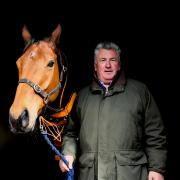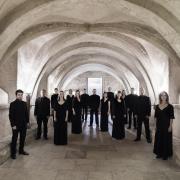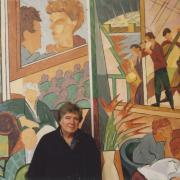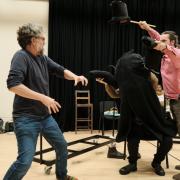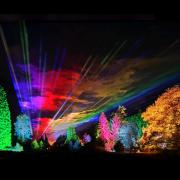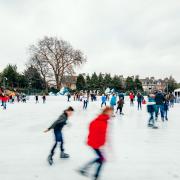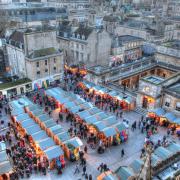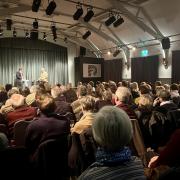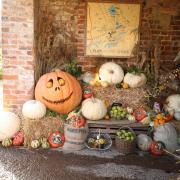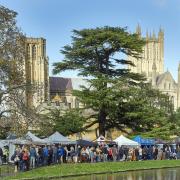Weston-super-Mare is famous for its donkeys.

Every summer, families bring down their newest addition for their first donkey ride; for many it is a rite of passage to be undertaken by each new generation.
Most people could not imagine the town without them: a fact that is hardly surprising when one realises that donkeys have been on its beach for almost 200 years.
In the early 19th century the donkeys of Weston were an important part of the fishing industry.
Fishermen would place a basket on either side of the donkey and lead them down to the tide edge, where the baskets would be filled with the catch of the day.
The donkey’s patient temperament, gentle character and sure footedness meant that they were ideal animals for such a task and, as such, they were highly valued by the fishermen.
However, as the century progressed, the Victorians began to visit seaside towns for health and pleasure and the seaside resort was born.
It seemed as if donkeys might be out of a job until it was realised that the very characteristics which had made them so useful to the fishermen could be adapted to the needs of holidaymakers.
Weston-super-Mare, and one family in particular, was among the first to realise this.
The Mager family began their famous donkey rides in 1886 and, five generations later, the same family and their donkeys continue to be one of the most popular attractions in Weston-super-Mare.
It was begun by William Mager who realised that many invalids visited the town, in order to benefit from the healthy sea air.
However, some of them found it difficult to walk on the beach and so William discovered a way of making it easier for them.
He made a little carriage, which resembled a bath chair, and attached it to a donkey to pull along at a stately pace.
Soon, it was not only invalids that wanted to be pulled by a donkey: fashionable ladies and gentlemen thought it would be a very novel way of enjoying the beach without actually having to walk on it.
In order to cater for this new wealthy clientele, William dressed his young son as a coachman in order to walk beside the donkey.
As time passed, people wanted to experience sitting on the donkeys themselves, although many ladies would insist on riding side saddle.
Today, the family has 50 donkeys and the business is run by brothers Nick, Kevin and Pete Mager; although Nick’s father, Ron, who is now in his 80s, continues to be involved.
It’s hard to completely retire from the business but as Ron says, “If I didn’t enjoy it as much as I do, I wouldn’t continue to do it at my age.”
Ron and his sons have heard several sweet nothings whispered between courting couples as they ride on the donkeys and have even overheard one or two marriage proposals.
In fact, one couple make a point of coming back to see the Mager donkeys on their wedding anniversary every July because it was while riding donkeys, more than 50 years ago, that they decided to marry.
Nick Mager also discovered romance because of the donkeys, as it was through them that he found his wife, Ann.
In a custom that still goes on today, the donkeys take part in the annual Palm Sunday service. Nick laughs as he recalls what happened, “My dad had told me to take two donkeys along to the service but unusually for me in those days, I was too early.
“The vicar told me to wait and I decided to pass the time by giving the donkeys a final brush with a curry comb.
“The vicar took pity on me and sent his daughter, Anne, out with a drink of lemonade.
“I would like to say that she immediately fell in love with me but I have to be honest: it was the donkeys that she fell in love with first!”
Today, the family owns 50 donkeys and has three pitches on the beach.
The family has won many awards including The Nation’s Favourite Seaside Attraction and believe it is, in part, due to the success in picking the best donkeys.
They must be gentle, like being with people and have a friendly disposition.
The family gets many of its donkeys from The Donkey Sanctuary and prides itself on being able to pick a donkey that will enjoy its work as one of the famous Weston-super-Mare donkeys.
There are certainly lots of benefits for the donkeys: not only do they become local celebrities, they are also treated very well and enjoy long relaxing winter breaks at a local farm!
Amal Khreisheh, a curator at Somerset Heritage Centre, acknowledges the importance of the donkeys to the town: “We have a permanent exhibition at Weston-super-Mare Museum and obviously the donkeys feature in that.
“However, at Somerset Heritage Centre, we hold an absolutely fascinating archive photograph collection of them.
“Some of these photographs are very early indeed and it is a delight to see how, although the fashions of the people who sit on the donkeys have changed, one thing remains constant: the smile on everyone’s face!”
Last year, fibre glass models of the donkeys were auctioned in order to raise money for Children in Need and the RNLI.
Each donkey had been decorated by a local artist, in a unique way and there was expected to be a lot of local interest.
There certainly was a lot of local interest but the organisers were amazed to have bids made from places as far away as Hong Kong: it seemed that everyone wanted to own a Weston-super-Mare donkey or, at least, a replica of one!
The Mager family is rightly proud of the donkeys and their heritage.
The family has been on the beach for 125 years and believes that there will always be donkeys on Weston-super-Mare beach.
Happily, many people agree with them!




